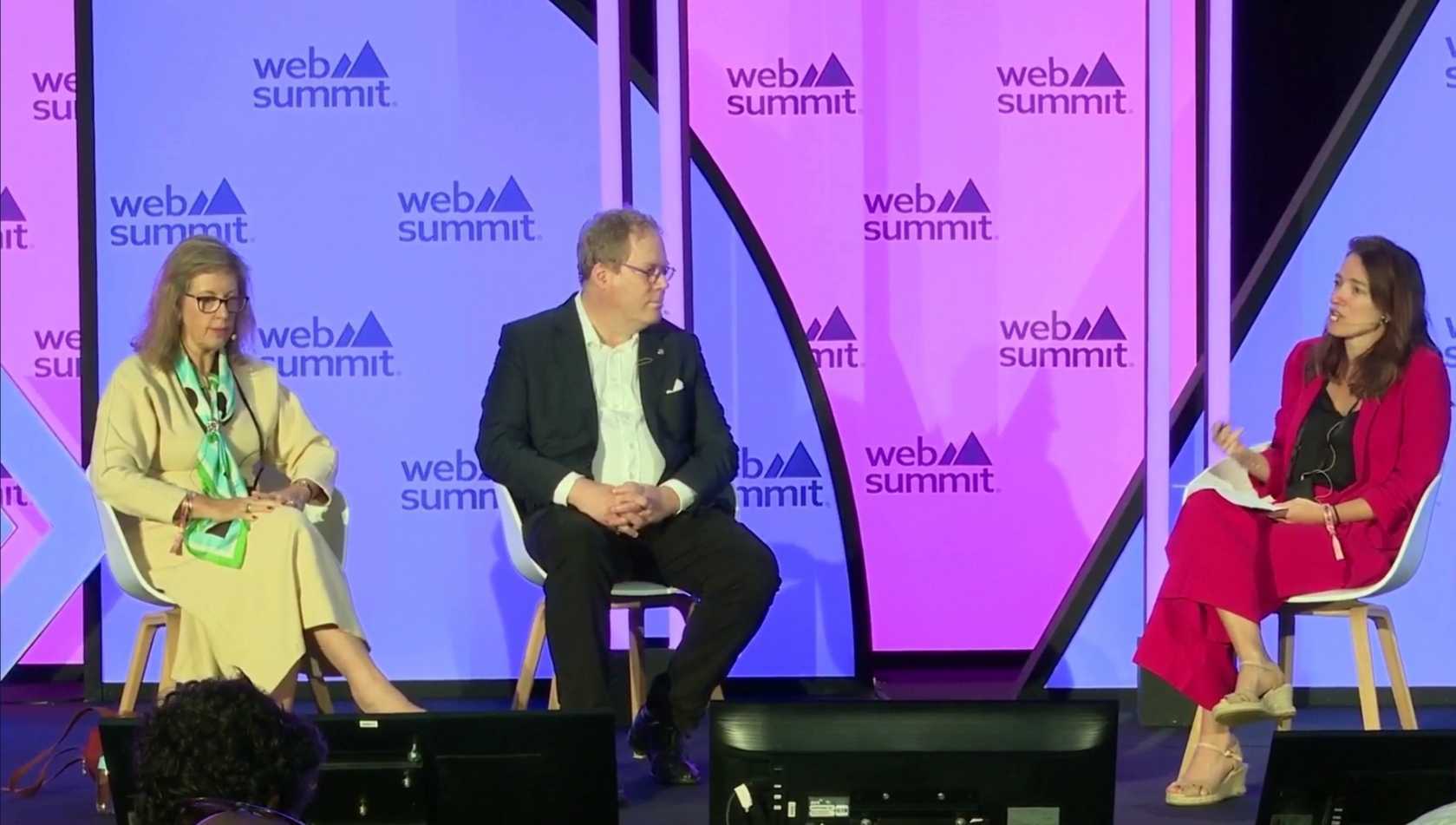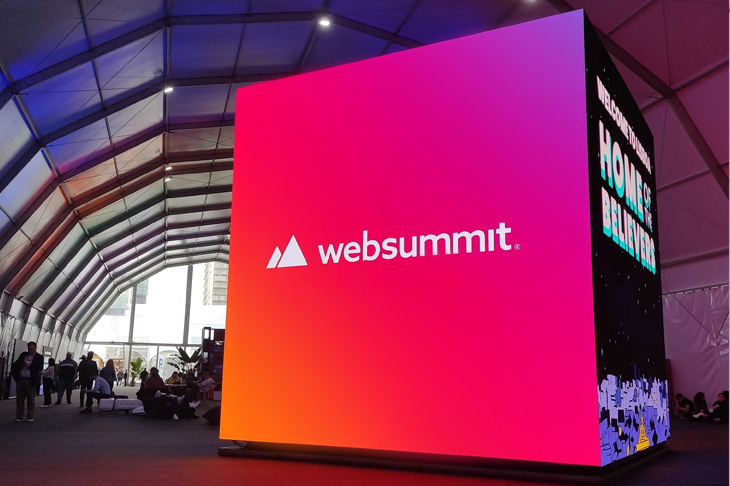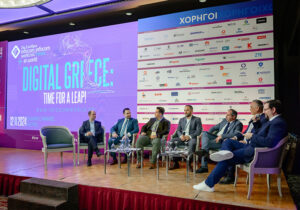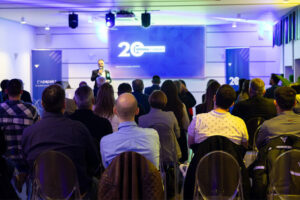Web Summit, one of Europe’s largest conferences, returned on 13-16 November for its 8th year in Lisbon at Altice Arena to give the pulse of technology innovations, and Papaki couldn’t miss it!
Among more than 25 theme sections, 16 stages, and dozens of speeches, roundtables, and masterclasses, the main protagonist was undoubtedly artificial intelligence, which was at the center of the discussion of top keynote speakers for its positive and negative aspects.
Topic highlights

The 4-days event was full of interesting speeches. We were there and picked out a few, the content of which we share with you to give you a little taste of the event!
How secure is our data?
Meredith Whittaker, Signal’s President, and ethical AI researcher expressed her worries about the big tech companies’ “surveillance business model” which as she commented, “fundamentally undermines privacy”. For this, Mrs. Wittaker underlined the necessity of relevant regulations.
Can AI contribute to sustainability?
Melanie Nakagawa, Microsoft’s chief sustainability officer, talked about the climate solutions that AI brings. Although she recognized that “next-gen AI comes with increased resource demands” which means more emissions, she argued that “AI has the power to unlock enormous possibilities in sustainability” by mentioning several recent examples of saving energy and resources with AI seen at a demo in London in recent months.
How can AI help in work?
Albert Wenger, managing partner of Union Square Ventures, presented a positive vision of Artificial Intelligence. He argued that AI could liberate humans from unnecessary work, and it could not lead to the loss of job positions. Moreover, he put the issue of regulations and claimed that “full permissionless innovation on even more powerful technology is, I think, faulty.”
Do we need more regulations/governance for AI?
On the other side, Andrew McAfee, a principal research scientist at MIT, in his speech entitled “How do we regulate AI?” argued for “permissionless innovation” and regarding the AI applications freely available on the market, he claimed that “if you have more upstream governance, one of the things you should expect is less innovation”. After all, according to him, “Innovation is a fairly unpredictable, decentralized activity” without meaning this complete freedom from regulations and supervision.
Do we need to worry about AI?
Jimmy Wales, Wikipedia founder, advised the tech world to remain wary of the “lazy alarmism” regarding the rise of AI. He also expressed his satisfaction and pride that Wikipedia is a reliable source of information for AI systems training. Moreover, he encouraged people of technology to think carefully but positively when working on AI development.
ICANN for the first time at the Web Summit

A ‘resounding’ presence was that of ICANN for the first time at the Web Summit and of the company’s CEO and Interim President, Sally Costerton.
ICANN (Internet Corporation for Assigned Names and Numbers) is the official organization responsible for coordinating the maintenance and procedures of the global network, and its presence is quite significant.
In the panel “Strength in Unity: How to save the Internet” she explained the non-intervening role of ICANN in governmental Internet access fragmentations. Mrs. Costerton indicated that ICANN “needs to make sure that when those governments do that, they know the technical consequences of that regulation” on infrastructure. For this “ICANN spends a lot of time educating governments, plan, think about” before they take such an action.
However, in the panel “How to stop the internet from unraveling” she noted the importance of governments regulating the network, but in a way that “the regulation they want to put in maintains the internet global and operable”.
PITCH: Startup competition
However, apart from the inspiring speeches, Web Summit also had innovative startups that claimed the award in the PITCH sessions competition after the audience and judges voted.
Among 105 startups that competed in the 3-day PITCH, Inspira, a Brazilian AI company, was announced as the winner in the “Final PITCH” at Web Summit 2023. Inspira was founded in 2021 and has developed an AI legal assistant for daily legal workload.
Henrique Ferreira, the company’s co-founder, said, “We’ve been seeing huge growth of the legal ecosystem in terms of investment”. He also added “And, for us, just being here is a dream come true. Lisbon is important. If you think about the business side, it’s a way of entry to another market.”
Rendezvous in 2024
The event is not by chance considered one of the largest of its kind. The numbers speak for themselves: more than 70.200 attendants from 153 countries, more than 2.600 startups that took part in the PITCH Competition for the most promising startup, and 906 investors. Furthermore, 2.100 leading media, including Al Jazeera, CNBC, Politico, and Euro News, participated.
All these people met not only at Altice Arena but also at various locations around the city, as well as at Night Summits – the event’s night parties that were perfect for relaxing and networking!
The rendezvous for Web Summit Lisbon was renewed for November 11-14, 2024, at Altice Arena in Lisbon. If you want to join the largest tech event in Europe and live this unique experience, the ticket pre-sale has already started.






Join the Discussion